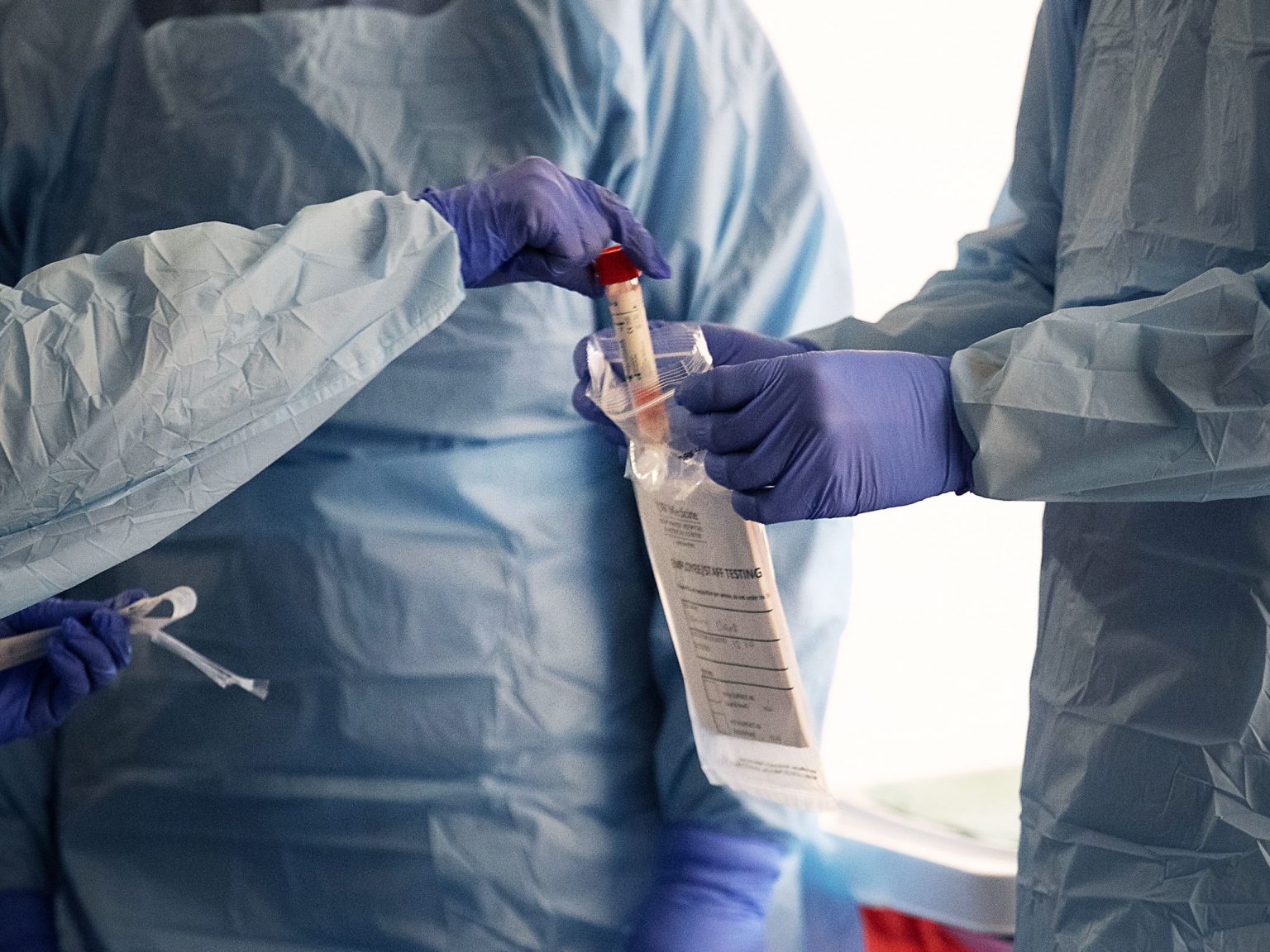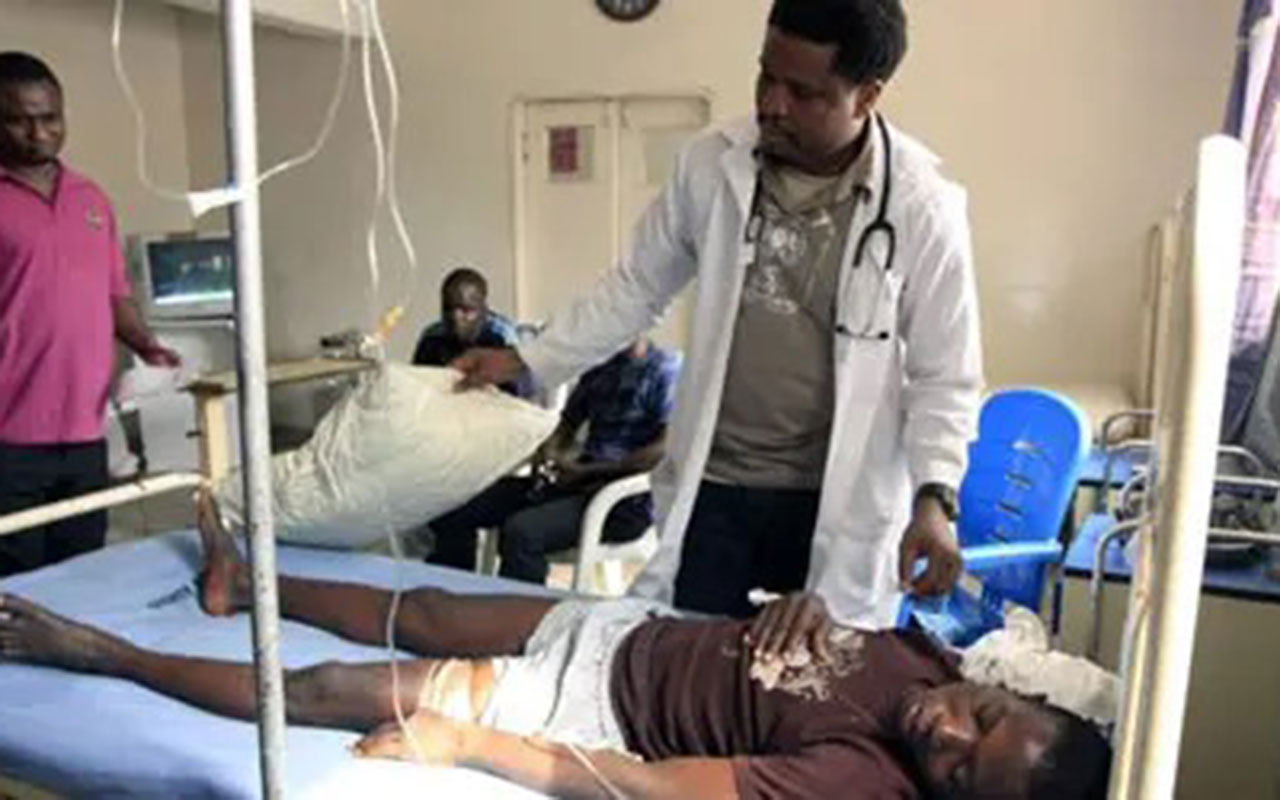Health
Stakeholders worry as TB scourge fails to abate in Nigeria

Since 2017, when the World Health Organization (WHO) initially published a report revealing that 18 Nigerians succumb to Tuberculosis (TB) every hour, efforts have been made to address the issue. Some Nigerians believe the reported figures are underestimated, suggesting the actual number may be higher, while others suspect the figures were inflated to attract international donor funding.
The Federal Government of Nigeria has implemented measures to combat TB, but the results have been limited. A recent report by the National Tuberculosis, Buruli Ulcer, and Leprosy Control Programme (NTBLCP) reiterates that more than 18 Nigerians still die every hour from TB. Mrs. Itohowo Uko, Deputy Director at NTBLCP, emphasized the severity of TB, an airborne infectious disease caused by Mycobacterium Tuberculosis.
According to Uko, the 2017 global report from the WHO identified Nigeria among the 14 countries with a high burden of TB. The country recorded 104,940 TB patients in 2017, constituting approximately 20% of the known cases. Despite efforts, the death toll remains alarming, with 18 Nigerians perishing hourly from TB.
Dr. Cynthia Onwuteaka of KNCV Nigeria highlighted the significance of World Tuberculosis Day in March 2023, calling TB the world’s second deadliest disease after COVID-19. The report indicates a prevalence rate of 219 cases per 100,000 persons in Nigeria, translating to an estimated 500,000 individuals affected annually.
Despite declining TB cases and deaths from 2017 to 2021, the reported figure of 18 Nigerians dying every hour has persisted. Stakeholders, including Lagos State Governor’s wife, Ibijoke Sanwo-Olu, advocate for increased awareness and free TB testing and treatment.
However, some medical professionals, like Dr. Ifeanyi Ohabuenyi, question the authenticity of the reported figures. Ohabuenyi suggests that data might be exaggerated to secure international funding, asserting that TB is declining and no longer prevalent. He emphasizes the need for accurate reporting to ensure continued financial support.
In summary, the fight against TB in Nigeria faces challenges, including skepticism about reported figures, concerns about funding dependency, and ongoing efforts to raise awareness and provide accessible testing and treatment.
Health
Ekiti govt prepares for vaccination of girl child against cervical cancer

As part of measures to prevent the scourge of cervical cancer in Ekiti State, the government is set to begin the vaccination of female children beginning from May this year.
To this end, a technical working group has been inaugurated to begin the necessary planning that would make the vaccination a success.
Inaugurating the group in Ado Ekiti, the Commissioner for Health, Dr. Oyebanji Filani, read out the terms and conditions which include “Mapping all relevant HPV stakeholders (EPI and Non-EPI), Provide coordination, management, and planning for all stakeholders meeting through the introduction, monitor and track the release of funding for the HPV rollout at the state, review the budget requirements for the pre-introduction and introduction activities, and monitor the timely disbursement of these funds to the lowest level.
Others are to provide overall guidance in the smooth running of the operations rooms during the introduction of the HPV vaccine, which includes early identification and proffer solutions to mitigate challenges during the HPVV introduction process. The team may make use of electronic communications through a group email to facilitate information sharing among all members between formal meetings.
Represented by the Permanent Secretary, Ministry of Health, Mrs. Olusola Gbenga-Igotun, the commissioner said the vaccine had been proven to be healthy and safe, urging parents to allow their children to take the vaccine.
He said the vaccine would be given to female children between the ages of nine and fourteen, while other age groups would be captured later.
Other stakeholders who spoke on the occasion, including clerics, market women, and CSOs, commended the government for the proper planning ahead of the vaccination and urged members of the public to embrace it.
Health
Nigerian scientists fail to win FG’s N36m prize for COVID-19, Lassa Fever cure

Nigerian scientists and researchers have been unable to claim the N36 million reward offered by the Federal Government for discovering cures for COVID-19 and Lassa Fever, according to checks by DAILY POST. The prize, announced on February 13, 2020, by the then Minister of Science and Technology, Dr. Ogbonnaya Onu, aimed to motivate scientists to find cures for the mentioned diseases. However, as of November 21, 2023, no one has successfully claimed the cash prize.
Dr. Onu had initially challenged Nigerian scientists to find cures for coronavirus and Lassa fever, pledging the N36 million reward for successful discoveries. Despite claims from some individuals and institutions asserting they had found a cure for COVID-19, a committee was set up in May 2020 to review these claims, and the matter seemingly faded away.
The most notable attempt was made by Prof. Maurice Iwu, a former chairman of the Independent National Electoral Commission, who presented a potential cure for COVID-19 in March 2020. However, the cash prize remained unclaimed, and Iwu’s efforts did not lead to the development of a cure for COVID-19.
With the departure of the former minister and the change in administration, the N36 million cash prize appears to have been forgotten. The current director of press and public relations in the Federal Ministry of Innovation, Science, and Technology expressed unawareness of the prize, signaling a lack of continuity in addressing the matter.
Prof. Mosto Onuoha, the President of the Nigerian Academy of Science at the time of the prize announcement, indicated that the issue was inconclusive. He mentioned a lack of clarity in the conceptualization of the cash prize, suggesting that there may not have been a well-defined process for submissions and evaluation.
In conclusion, three years after the announcement, the N36 million cash prize for discovering cures for COVID-19 and Lassa Fever remains unclaimed and seemingly forgotten, raising questions about the transparency and effectiveness of the incentive program.
Health
Gunshot Wounds: We are ready to treat victims, health workers declare

Healthcare professionals and law enforcement officers have expressed their support for the recent directive issued by the Inspector General of Police, IGP Olukayode Egbetokun. The directive instructs hospitals to provide immediate treatment to individuals with gunshot wounds without the need for a police report from the victim.
These professionals believe that this action will significantly save the lives of innocent people in the country. They call on the police to reconsider and improve their implementation of the Gunshot Act, as well as conduct a comprehensive awareness campaign to inform all healthcare workers about this new policy.
The reluctance of healthcare workers to treat gunshot victims in the past was rooted in their concern for potential legal repercussions, as some of their colleagues had faced legal issues for adhering to their professional duty as per the Hippocratic oath. However, the Gunshot Act of 2017, signed into law by former president Muhammadu Buhari, mandates all medical facilities to promptly provide care to gunshot victims, irrespective of whether the hospital is public or private. It also requires assistance from law enforcement agencies.
The Act’s provisions include:
Section 1, which establishes the right of every gunshot victim to receive treatment.
Section 2, which mandates security assistance for the victim.
Section 3, which prohibits any inhumane or degrading treatment of the victim.
Section 4, requiring hospitals to notify the police and the victim’s family.
Section 5, stipulating that the police investigate the circumstances of the shooting.
Section 16, which prescribes penalties for offenses related to the Act, including the obligation to make restitution to the victim.
Despite the Act being adopted in some states, hospitals have been hesitant to comply due to concerns about potential entanglement with police investigations targeting criminals. Tragically, this hesitation has resulted in the loss of innocent lives in need of urgent medical care.
The case of a woman named Greatness Olorunfemi, who bled to death after being refused treatment at Maitama General Hospital in Abuja, highlights the urgent need for change. She was denied care until a police report was provided.
In response to this incident, the civil society group YALI Network petitioned the Minister of Federal Capital Territory and the IGP, urging action to prevent similar occurrences.
The IGP subsequently issued a directive on October 25, 2023, instructing hospitals to treat gunshot wounds without requiring a police report. This directive, addressed to police officers at various levels, emphasizes compliance with the Gunshot Act of 2017 and the need to raise public awareness regarding this law.
Healthcare professionals and experts have expressed their views on this directive. Dr. Eleanor Nwadionbi, President of the Medical Women’s International Association, emphasizes the importance of collaboration among all stakeholders involved in ensuring the safety and well-being of citizens.
Reproductive healthcare physician Dr. Chioma Nwakanma-Akanno notes that not all hospitals reject gunshot victims, but ignorance of the law and concerns about past experiences with the police have contributed to such refusals.
Dr. Samuel Chinwueze Johnson, an Obstetrician and Gynaecologist, asserts that he does not reject treating gunshot victims, as the law provides protection for doctors who adhere to it. He emphasizes that doctors should refer cases to the police when necessary.
Former Director of the Department of State Services (DSS), Mr. Dennis Amachree, believes the IGP’s directive clarifies uncertainties among hospitals. However, he acknowledges that unresolved issues remain, such as who will cover the costs of surgery after treatment.
Certified Protection Officer (CPO) Frank Oshanugor supports the directive and emphasizes the need for a clear framework for enforcing the law, including consequences for non-compliance.
Security expert Mr. Christopher Oji highlights that the law has long existed, but a lack of enforcement and concerns about police extortion have deterred hospitals from complying. He calls for an educational campaign by the police to inform hospitals about the importance of treating gunshot victims promptly and seeking police involvement afterward.
-

 World News7 months ago
World News7 months agoWhat we know about Israel’s war with Hamas
-

 Sports6 months ago
Sports6 months agoLaLiga: Everyone want to play with him – Vinicius on player Real Madrid should sign
-

 World News7 months ago
World News7 months agoIran calls on Islamic, Arab countries to confront Israel
-

 Tech7 months ago
Tech7 months agoTop 10 AI Skills to Learn in 2023
-

 Entertainment7 months ago
Entertainment7 months agoBET Hip-Hop Awards: Black Sherif wins big as Burna Boy loses seven nominations
-

 Entertainment6 months ago
Entertainment6 months ago‘Black Panther’ star Lupita Nyong’o breaks up with boyfriend, Selema Masekela
-

 ICT8 months ago
ICT8 months agoApple Bows To EU, Unveils iPhone With USB-C Charger
-

 World News7 months ago
World News7 months agoZelensky seeks defences for winter on visit to NATO


